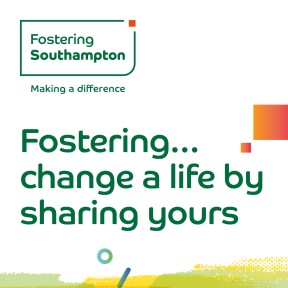Elective home education
Elective home education (EHE), is also known as home schooling. It is the term used to describe parents' decisions to provide education for their children at home instead of sending them to school. Parents may teach their children themselves or hire a tutor. However, they remain fully responsible for ensuring that their child receives a suitable, full-time education.
Educating your child at home is a big commitment. We have drawn together guidance and advice to help:
- Reach a decision about whether or not elective home education is for you, if you are considering this as an option
- Support you if you are already home educating
Notify us of elective home education
If you have recently moved to Southampton and are either:
- A home educator
- Planning not to enrol your child in the next phase of their school education (for example primary to secondary school transfer)
Please use our contact form to let us know.
If you wish to withdraw your child from school to electively home educate them, you will need to write to the headteacher to let them know your decision. This cannot be done by telephone.
Schools should notify us of pupils withdrawn for elective home education using our contact form.
Parents must make the decision to electively home educate freely, and without pressure from schools or other agencies. If you feel pressurised, or requested, to home educate your child, please use our contact form and we will provide support.
What happens if I decide to home educate?
As a parent, you must ensure your child receives a full-time education from the age of five. Your child’s education needs to:
- Be suitable for their age
- Be suitable for their aptitude and ability
- Account for any special educational needs
- Include social development
Elective home education means that you are accepting full responsibility for education. This includes financial responsibility. The council are unable to provide tutors, educational materials or support for examinations.
As a home educator, you do not need to follow the national curriculum. However, this would be helpful if your child wishes to attend school, college, university or training at a later stage.
Consideration should be given to other options that would be more suitable for your child if you are considering home education because you are dissatisfied with their current school.
Southampton City Council aims to build good working relationships and transparent communication with home educators. We follow the 2019 DfE guidance document, which supports contact with home educated families. Each family will have an Education Access Officer. They will be able to provide advice and guidance and will make periodic contact with families. We will ask new home educators to provide us with an overview of education plans. This is to satisfy the council’s obligation to establish whether a child is in receipt of suitable education. We will work flexibly with families as to how this is provided.
You can find more detailed information about elective home education, alongside examples of how the council will engage with you, in our downloads.
If you later decide that home education is no longer the best option for your family, you can apply for a school place at any time.
More information about home education
Safeguarding
As with all children, any concerns of a safeguarding nature for a home educated child should be reported to our Children's Resource Service (CRS).
If you think a child is at immediate risk of harm you should call 999.
We also use social media as a tool to communicate with our home educating community. We share events, information and resources that home educators may find useful. To ensure that you do not miss out please follow us on Facebook. Please note that Facebook will be used to share information, but will not be used as a means of individual communication.







